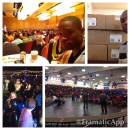What is money?
Is it limited? What does it represent or stand for? Is it a means or an end?
Dictionary Definition
mon·ey [ múnnee ]
1. medium of exchange: a medium of exchange issued by a government or other public authority in the form of coins of gold, silver, or other metal, or paper bills, used as the measure of the value of goods and services
2. denomination: a form or denomination of coin or paper money
3. somebody’s coins and bills: the amount of coins and bills in somebody’s possession
Jullien’s Definition
Money is an agreed upon storer of value created in the past to facilitate easier exchange in the present.
Imagine that we are in a barter economy and two men are willing to trade 3 apples for 5 oranges. With monty, instead of exchanging apples for oranges now, the man with the 3 apples can sell his apples now and buy oranges or anything else he wants of equal or lesser value later. Nonetheless, the 3 apples were valuable to the other man now, but the apple guy can defer his consumption for later.
Money is a means. In most cases it’s paper or coin. Paper comes from trees and coins are rocks. A dollar bill could be used to write on or fuel a fire, but we have given it a value and agreed to it. We could skip coins on the lake or use them as paper weights, but we’ve attributed a value to them as well. Again, money is an invention that we created to facilitate exchange easier.
Most monies are fiat money, meaning that it has value only because of government regulation or law. The term derives from the Latin fiat, meaning “let it be done”, as such money is established by government decree. According to Bernard Lietaer, “Fiat is the process is the of creating something out of nothing by the power of the word. (Source)”
Money is relative—that’s why there are exchange rates among different forms of currency. 3 apples can cost $1 or $100—it doesn’t matter as long as the ratio of 3 apples for 5 oranges works out. So it’s not about how much money you have, what’s important is the relationship between the value of the things we have and want to have. If more value is created, then so is more money. That’s how new companies and markets emerge. They create value in areas customers didn’t even know they valued which causes a shift in how people spend their money.
The catch is that when things are going good, we tend to borrow money from the future to get what we want to have now instead of later. Banks, investors, and creditors are willing to lend us money based on our financial history and trajectory. The moment someone gives us an I-owe-you, new money is created because someone is saying I will give you $120 tomorrow in exchange for $100 today. In a fractional-reserve banking system, the money multipler essentially allows this lending to be infinite, but in reality, all of the I-owe-yous in the world aren’t money, they are credit or other financial derivatives that we don’t know the true monetary value of until the economy slows down or stops.
Therefore, credit is unlimited while real money is ambiguous—if we lose trust in the dollar it decreases and if we gain trust in the dollar it increases because more lending is occurring. The dollar would be more accurate if it said “In each other we trust.” There is difference between physical money and financial money. Though cash is physical money, if it is under our mattresses it has no interest or return. But the money we deposit/entrust it into a bank, it converts from physical money to financial money, and it earns interests. There are times when it’s better to have physical money and there are times when it’s better to have financial money. It depends on our individual goals and timelines.
Regardless, value creation is the prerequisite for getting physical money…for 95% of people (source). In the U.S., the top 5% have over 70% of the financial wealth. Since money can be passed down from generation to generation, they can actually eat off of value that was created by their elders decades and even centuries ago. But overall, if we want more money in our lives, we have figure out how to create more value. And once we figure out how to create more value, we can capture some of that value in the form of physical money.
In a sense, money is stored energy. That’s why it is called currency. And the more liquid our assets are, the more we can direct the flow of the world in a certain direction. But keep in mind that there are many forms of energy that can be access such as thought energy (mind), physical energy (body), spiritual energy (soul), and relational energy (network) and it is the combination of these energies that have actually created the value and thus the money that exists in the world today. Without them, this stored form of energy wouldn’t exists, but we value it so highly because it seems to be the easiest to access and deploy, when in fact the other four are just as easy.
Give and you shall receive!



